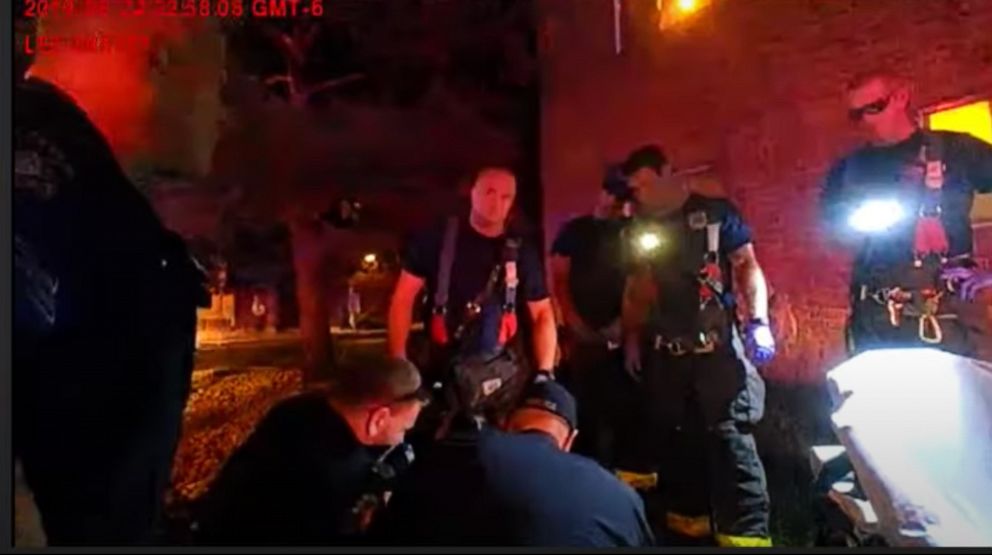Officers, paramedics plead not guilty in connection with death of Elijah McClain
The men charged in his death will be separated into three trials.
Five Aurora, Colorado, first responders pleaded not guilty in an arraignment Friday on charges of manslaughter and criminally negligent homicide, among other counts, in the death of Elijah McClain.
McClain died in 2019 after being stopped by police, placed in a chokehold and injected with ketamine as a sedative.
The five defendants' cases will be split into three separate proceedings, according to a Wednesday court order from Adams County District Court Judge Mark Douglas Warner.
Aurora police officers Nathan Woodyard and Randy Roedema, former officer Jason Rosenblatt and paramedics Jeremy Cooper and Lt. Peter Cichuniec were indicted on a total of 32 counts related to McClain's violent arrest and death in August 2019.
Cooper and Cichuniec, who injected the ketamine, will be tried together.
"The paramedics, Cichuniec and Cooper, generally assert that the actions of the law enforcement officers occurring prior to their arrival were factually unrelated to their actions implicated in their cases," Warner wrote in the court order.

Rosenblatt and Roedema, who helped to restrain McClain, will also be tried together. Woodyard will be tried separately because he was first on the scene and allegedly placed McClain in the carotid hold, according to the court order.
"The Court well understands the legal theory of complicity. Nonetheless, the Court finds that under the particular facts as alleged in this case warrant severance of trials," the order read.
McClain, a Black 23-year-old massage therapist, died following an encounter with police in August 2019 while he was walking home from a convenience store.
A passerby had called 911 to report McClain was acting "sketchy" since he was wearing a ski mask on a warm night. The lawyer for the McClain family attributed this to the fact that McClain was anemic, which made him feel cold more easily.
Aurora police officers responded to the scene and confronted McClain.
An officer can be heard saying in body camera footage that they put him into a carotid chokehold, which restricts the carotid artery and cuts off blood to the brain, according to the Department of Justice.

McClain can be heard saying, "I can't breathe," in police body camera footage.
Paramedics arrived, giving McClain an "excessive" dose of ketamine, according to McCain's lawyer, and McClain suffered from cardiac arrest in an ambulance shortly afterward, according to officials. McClain was pronounced dead three days later.
The cause of death was listed in an amended autopsy report as "complications of ketamine administration following forcible restraint."
"The investigation suggests that [McClain] received an intramuscular dose of ketamine that was higher than recommended for his weight," according to the report from Adams County Chief Coroner Monica Broncucia-Jordan.
It continued, "Further, my review of all the body camera footage shows that Mr. McClain was extremely sedated within minutes of receiving a shot of ketamine. When he was placed on a stretcher, I believe he was displaying agonal breathing and respiratory arrest was imminent."
"I believe that Mr. McClain would most likely be alive but for the administration of ketamine," the report read.




